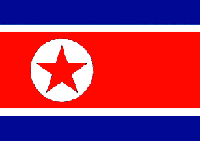Japan and Australia respond to North Korea's missile tests
Australia and Japan joined their efforts to announce new sanctions that will be imposed on companies involved in the development of North Korea’s nuclear program. This became a response from the two countries to N.Korea’s recent missile tests (articles) conducted in July.

Japan's Cabinet approved financial sanctions banning fund transfers and overseas remittances by 15 companies and one individual suspected of links to North Korean weapons programs, Chief Cabinet Secretary Shinzo Abe said.
The companies are mostly based in North Korea's capital but also include a Swiss industrial supply company previously targeted for sanctions by Washington, plus the company's president.
Australia sanctioned the same Swiss businessman, Jakob Steiger, and 12 of the companies on Japan's list, in a move that Australian Foreign Minister Alexander Downer said amounted to a "strong message to North Korea."
Both governments described the measures as consistent with the U.N. Security Council resolution that condemned the launches. But it was unclear what effect they would have on efforts to get Pyongyang back to the negotiating table for discussions aimed at ending its nuclear weapons program.
"By taking these measures, we have demonstrated the resolve of the international community and Japan that is in line with the U.N. Security Council resolution," Abe said.
"I do not know how North Korea will respond, but I hope North Korea will accept the U.N. Security Council resolution in a sincere manner and respond to various concerns of the international community," he said.
In Australia, Downer said the measures announced Tuesday "were consistent with our strong international stand against the proliferation of weapons of mass destruction."
Australia "will implement similar sanctions against any other companies or individuals who seek to undermine international security and stability through assisting North Korea continue its ill-considered, costly and provocative WMD programs," he said in a statement.
Australians were barred from doing any business with the sanctioned parties.
Among the groups targeted by both Japan and Australia were the Korea Kwangsong Trading Corp., the Korea Complex Equipment Import Corp., the Korea Mining Development Trading Corp., the Tosong Technology Trading Corp. and Tanchon Commercial Bank in Pyongyang.
Also targeted were Swiss company Kohas AG, and its president, Steiger, 65.
Communist North Korea's moribund economy is heavily dependent on cash infusions from a large community of sympathetic ethnic Koreans in Japan.
Abe said the government devised its list of sanction targets using information from other governments and information from its own findings, including groups with histories of illegal activities. He did not give specifics.
Tokyo had already approved trade restrictions in the wake of the July tests, which saw seven missiles fall harmlessly into the Sea of Japan but drew strong condemnation from around the world
The new restrictions will also tighten identification checks on people making suspicious transactions. The Finance Ministry also said it planned to inspect financial institutions engaged in foreign exchange operations to ensure compliance, the AP said.
In March, the United States froze the assets of Kohas and Steiger, alleging they helped North Korea proliferate weapons of mass destruction. Swiss government authorities rejected the allegations at the time South Korea's Foreign Ministry issued a muted response to the announcements from Tokyo and Canberra.
"We understand that (the two countries) made the decisions after reviewing domestic and international laws in accordance with the U.N. Security Council resolution," said South Korean Foreign Ministry spokesman Choo Kyu-ho.
The United States, China, Japan, Russia and South Korea have tried to persuade the North to abandon its nuclear program at the talks, which have been on hold since November 2005 because North Korea refuses to attend until Washington lifts its financial restrictions, the AP reports.
It was unclear if the new measures would only increase Pyongyang's obstinacy over returning to six-party negotiations over its nuclear program.
Subscribe to Pravda.Ru Telegram channel, Facebook, RSS!


